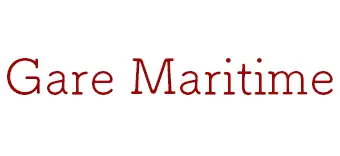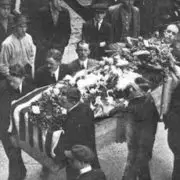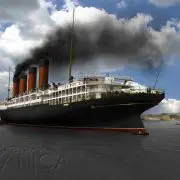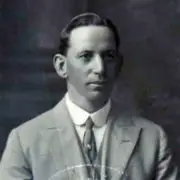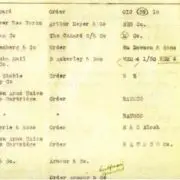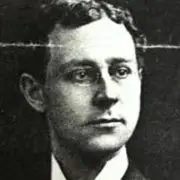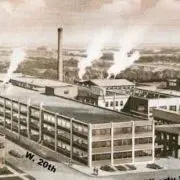The Lusitania : Part 7 : Passengers of Distinction
James Tilley Houghton was born in Saratoga Springs, New York, on July 23 1885. His father was James Warren Houghton, a Justice of the Supreme Court of the State of New York. He was prepared for college by private tutors, and went to Harvard University in the fall of 1904, where he was a member of the Pi Eta society and took lead roles in several of the society’s shows. He received his college degree in 1908 and three years later his medical degree.
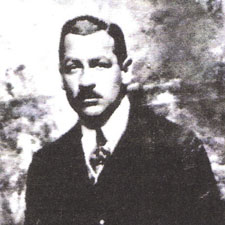
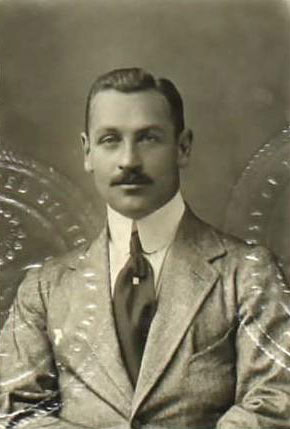
Houghton went to work at City Hospital in Boston, Massachusetts. It was there, in February 1913, that his father was admitted for surgery after falling ill with appendicitis. The operation was not a success and Justice Houghton died on February 14, 1913.
Dr. James Houghton was working for the Belgian Red Cross by 1915, under the supervision of Dr. Antoine Depage at his hospital at La Panne. He boarded the Lusitania on May 1st, joining Marie Depage, wife of Dr. Depage. Madame Depage, who was the head of the Belgian Relief Society, had been touring the United States, appealing for funds to help the Belgian relief effort.
Two telegrams were waiting for Dr. Houghton in his cabin, E64, which read: Best wishes, fine trip and speedy return. Cable address, will miss you terribly. God protect you – Hugh Caroline. Goodbye and good luck – Teresa.
The voyage passed uneventfully. Houghton renewed his acquaintance with Lindon Bates Jr. and Major Frederic Warren Pearl, both of whom worked for the Red Cross. He also met fellow a Harvard graduate, Richard Freeman, class of ‘09. Dinner each night was spent in the company of Madame Depage, and Theodate Pope and Edwin Friend, both of Connecticut.
Houghton was interviewed upon reaching Queenstown, and gave the following account of the disaster:
I may say that I had a dreadful foreboding that we were torpedoed and was not surprised when I got on deck to be informed by an Officer that we had been attacked by a German submarine. By the time I had reached the deck the vessel had decided list to starboard. I remained standing on the deck for a moment or two and was joined by Madame Depage.
The boats were by this time being lowered. An Officer told us that there was no danger. The vessel would be heading for Queenstown and would be beached there, if necessary.
The liner was again struck, this time forward of the main bridge. The first torpedo had struck midships. The second attack was evidently of a more deadly character than the first, as quite suddenly the big vessel began to settle by the head. Orders quickly came from the bridge to lower all the boats. This work was at once commenced.
Women and children were being rushed to the boats and were being lowered, some of them successfully, but others not. Many people were thrown into the sea. I saw the time to leave the ship, now well down by the head. I said to Madame Depage that we had better jump overboard and trust to be picked up by one of the rafts or lifeboats. This we both did. As I struck the water my head came into contact with a piece of wreckage which stunned me and I commenced to sink.
Happily I came to the surface again and I struck out for a damaged raft that was not far away. My first thought was to try and see Madame Depage but no trace of her was to be seen and I can only conclude that she was drowned.
Quite a number of people were on the raft and it was sinking under us. One poor fellow lost his reason altogether and jumped into the sea and was drowned. We were about 100 yards from the Lusitania when she foundered. It was an appalling sight to witness as her decks were still crowded with passengers frantically rushing about in a frenzied state. The spectacle in the water was even worse when scores of people were struggling to keep afloat and some shouting for help. But we could not give any assistance.
We were eventually picked up by a trawler and transferred to the tug Stormcock. We were then brought ashore at Queenstown. It was an awful experience and I thank providence for my escape.
